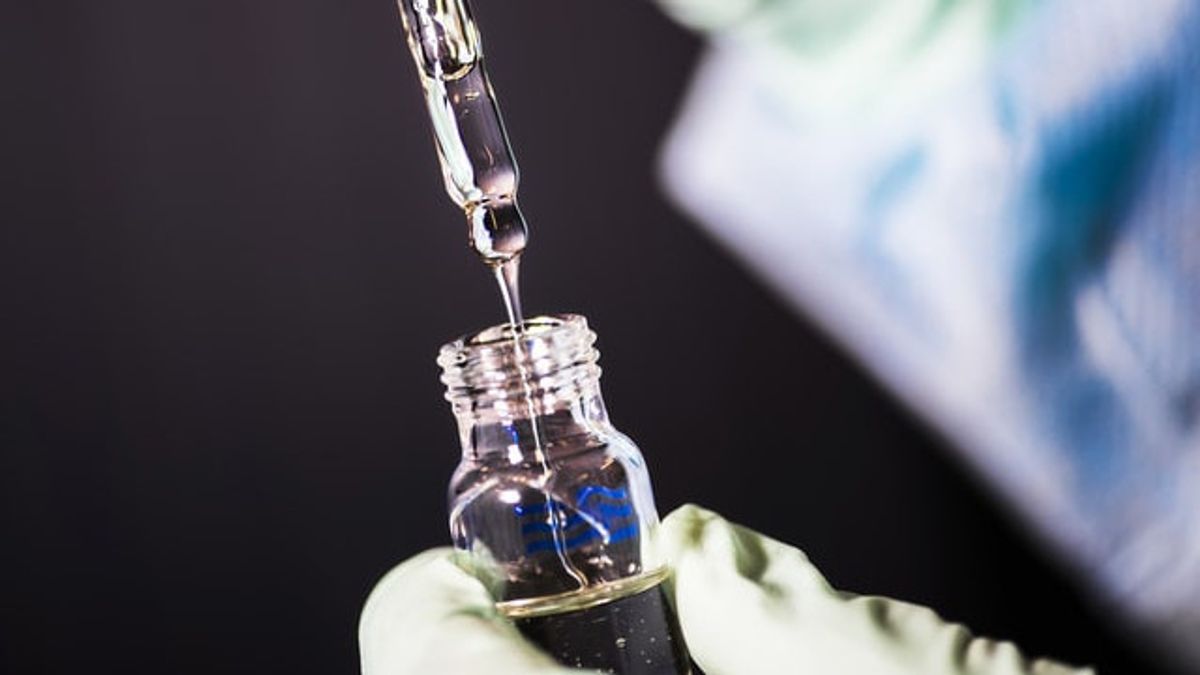JAKARTA - Preliminary data on trials of three potential COVID-19 vaccines released on Monday, July 20, including the one closely watched by the University of Oxford, showed promising results. A positive result increases confidence that the vaccine can train the immune system to recognize and fight the new coronavirus without serious side effects.
However, whether this vaccine can protect billions of people and end a global pandemic that has claimed more than 600,000 lives is far from clear. Much larger studies are needed to prove that these vaccines can safely prevent serious disease.
The vaccine developed by British drugmaker AstraZeneca in conjunction with the University of Oxford induced an immune response in all study participants who received two doses without worrying side effects. The COVID-19 vaccine, being developed by CanSinoBiologics Inc and the Chinese military research unit, also shows that the vaccine is safe and triggers an immune response in most of the 508 volunteers.
Volunteers who successfully responded to immunity received one dose of the vaccine, the researchers reported. About 77 percent of study volunteers experienced side effects, such as fever or pain at the injection site. However, no side effects are considered serious.
Both the AstraZeneca and CanSino vaccines use a harmless flu virus, known as an adenovirus, to carry genetic material from the new coronavirus into the body. The study of both vaccines is published in the journal The Lancet.
"Overall, the results from the two trials were broadly similar and promising," wrote Naor Bar-Zeev and William Moss, two vaccine experts from the Johns Hopkins School of Public Health.
However, the CanSino candidate is again showing signs that people who were previously exposed to certain adenoviruses have a reduced immune response. The study authors said that the "biggest obstacles" to vaccines need to be overcome.
German biotechnology BioNTech and US pharmaceutical company Pfizer Inc released details from a German study of different types of vaccines that use ribonucleic acid (RNA). RNA is a chemical carrier that contains instructions for making proteins.
Vaccines instruct cells to make proteins that mimic the outer surface of the coronavirus. The body recognizes this virus-like protein as foreign invaders and can then respond immunity to the actual virus.
In a previous study of 60 healthy adults, the vaccine induced viral neutralizing antibodies in those who were given two doses. The results are in line with early-stage US trials. The report follows last week's publication of the results of the Moderna Inc (MRNA.O) vaccine trial which showed similarly promising initial results. The Moderna vaccine also uses RNA.
Promising, but still a long way offOf all the vaccines being tested, none have shown any bad side effects. But all remains to be seen that this vaccine is safe with trials involving thousands of subjects, including those at high risk of developing severe COVID-19.
Historically, only 6 percent of vaccine candidates have finally made it to market. That too often after years of testing. Vaccine makers hope to shorten trial times and produce on a large scale before the product has proven successful.
Several manufacturers have US government backing with the aim of having a COVID-19 vaccine by the end of the year as cases continue to increase at a rapid rate. The collaborative vaccine AstraZeneca and the University of Oxford is one of 150 vaccines currently being developed globally and is considered the most advanced vaccine.
Final trials have begun in Brazil and South Africa and will begin in the US, where the prevalence of infection is highest.
The English, Chinese, Japanese, Arabic, and French versions are automatically generated by the AI. So there may still be inaccuracies in translating, please always see Indonesian as our main language. (system supported by DigitalSiber.id)








